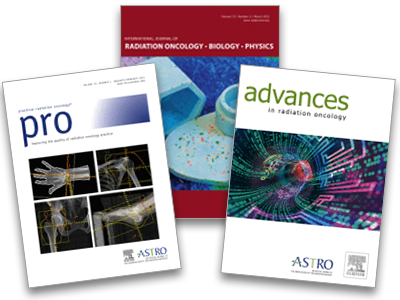
You’ve finalized a research paper, gathered all the disclosure forms and clicked “submit” to one of ASTRO’s journals! What happens next? This blog post will go through several aspects of the journal manuscript submission, review and publication processes, and provide tips for how to maximize efficiency.
Submission: Avoiding and Addressing Send-Backs
Prior to submission, be sure to review the general and journal-specific author instructions. These instructions are comprehensive and may appear a bit daunting, so you can search (through CTRL/COMMAND + F) any of the related pages for a specific concept or question.
ASTRO has a quality control team who looks over each manuscript that is submitted. Here are the most common reasons papers are sent back to authors before undergoing peer review:
- Missing disclosure/funding information on the article’s title page. This information is extremely important. It is up to the authors to determine and list relevant disclosures on the title page, though we recommend over- rather than under-disclosing.
- Lack of anonymization. All three ASTRO journals use a double-anonymized peer review process, meaning neither the reviewers nor editors know each other’s identities. For this reason, authors are asked to list all identifying information – for example, author names, institutions, funding and acknowledgments – only on the title page. Words that could reveal authors’ identities should be deleted from the manuscript and replaced with symbols or language such as “XXX” or “ANONYMIZED.”
- Too many words, figures or tables. Please see the author instructions to familiarize yourself with each journal and article type’s specific requirements. Authors may upload an unlimited amount of “supplementary material” files.
Peer Review: Where is My Paper?
Submissions are reviewed by a minimum of one editor but usually two, and papers that have the potential to be a good fit are sent to multiple editors and often, peer reviewers. Peer reviewers are typically subject matter experts who do not serve on an editorial board (note, however, that either serving on an editorial board or acting as a peer reviewer earns FASTRO points!). Many papers also undergo statistical review by a professional statistician.
Sometimes papers take longer in peer review than editors and staff expect. Common reasons for these delays could include: multiple reviewers are unable to review a paper due to scheduling conflicts; reviewer/editor out of office (especially during holiday periods); and conflicting reviewer recommendations resulting in additional reviewers being invited. Two to three members of the editorial board sign off on each paper’s publication decision.
We realize timeliness is of the utmost importance to authors, and authors are welcome to contact the editorial office for a status update if review is taking longer than anticipated (roughly four to six weeks). Be sure to include the manuscript number assigned in Editorial Manager.
When Will My Accepted Paper Publish?
Online publication for scientific papers in all of ASTRO’s journals happens rapidly. Barring issues needing to be addressed by authors, we aim for the online publication of scientific content within two weeks of acceptance. Editorials, letters to the editor and special features may take several months to publish, as these article types are usually published once its entire issue goes online. Should your special feature content be especially timely, you are welcome to contact the editorial office to request an exception.
ASTRO partners with Elsevier to publish its journals. Once ASTRO staff sends an accepted paper to Elsevier for copyright forms, copy editing and typesetting, that paper is effectively with Elsevier and no longer editable by ASTRO staff. Staff are available, however, to help put authors in touch with the correct contacts at Elsevier to address any issues that may arise in production.
Happy writing! We hope to see many of your submissions soon!
Blog commenting guidelines
- Commenters are required to identify themselves by name. Email verification is required for first time commenters.
- Comments are subject to review and should focus on the content of the blog post or other posted comments. Comments that are commercial or promotional in nature, are not relevant to the blog for which they have been submitted or are otherwise inappropriate will not be posted.
- All defamatory, abusive, harassing, profane, threatening, offensive, pornographic, obscene or illegal materials are strictly prohibited.
- Providing any non-public information about ASTRO or any other company or persons without authorization is prohibited.
- To preserve a climate that encourages both civil and fruitful dialogue, ASTRO reserves the right, in its sole discretion, to delete posts or ban users who violate these rules.


